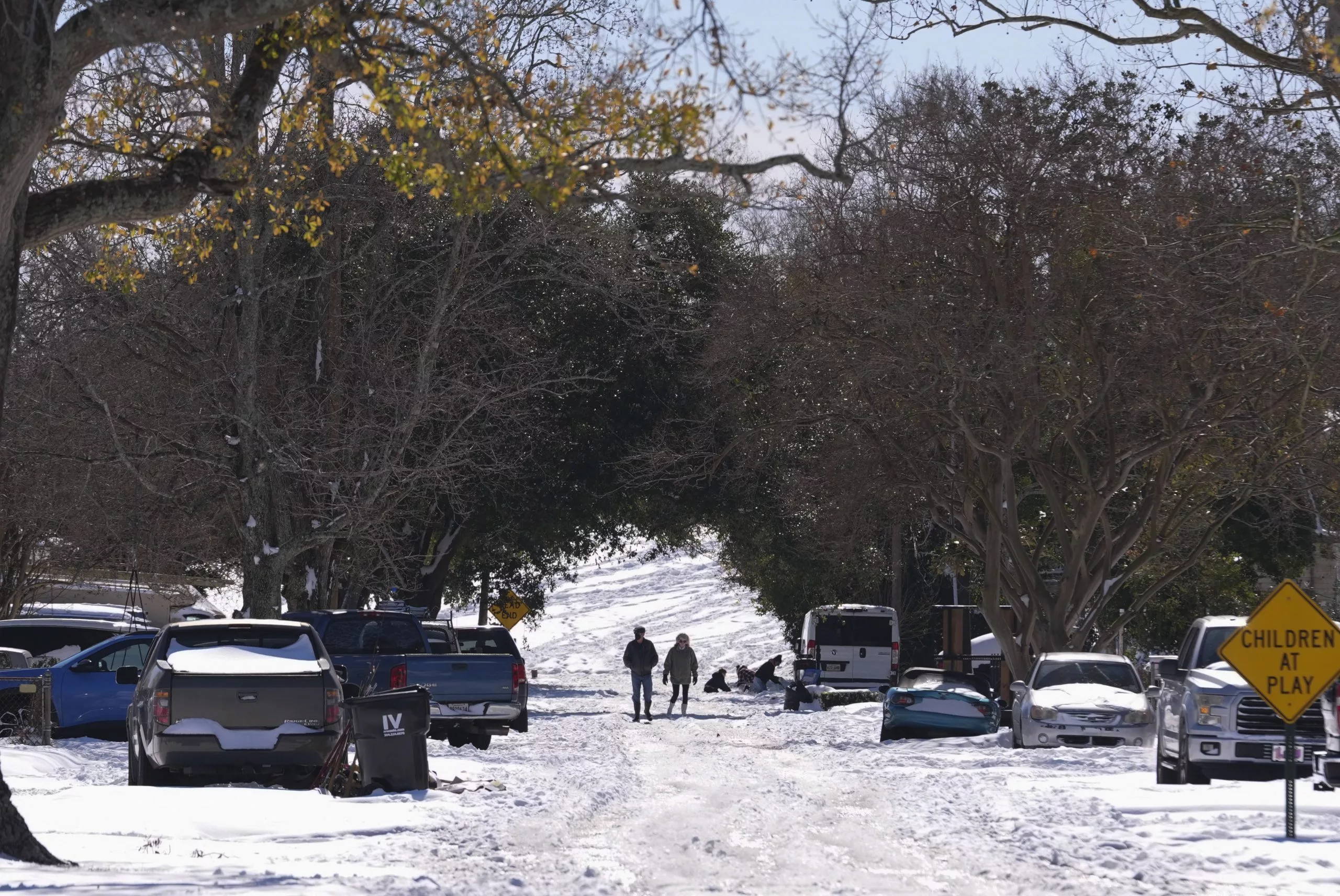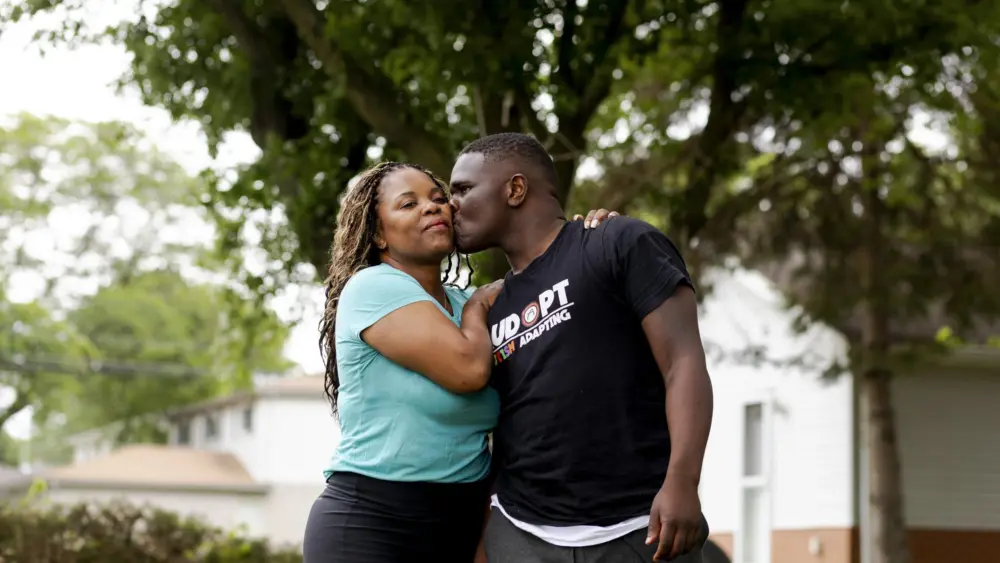NEW ORLEANS (AP) — Days after a winter storm dropped ice and record-breaking snow, cleanup efforts were underway Thursday in several major Southern cities such as New Orleans, where crews were removing snow the same way they remove trash, drink cups and plastic beads after Mardi Gras.
Temperatures were gradually rising across the U.S. South, bringing hopes that remaining snow and ice would melt away.
“We have to be honest with ourselves — we’re from Louisiana, we know crawfish, we know football, but we don’t really know snow and ice and that’s okay,” said Louisiana Department of Transportation and Development spokesperson Daniel Gitlin. “It’s going to go away and we’re better off letting Mother Nature do what she needs to do right now.”
Up to 200 miles (320 kilometers) of interstate was expected to remain closed until Friday due to treacherous patches of black ice, Gitlin said. Louisiana has nearly run out of its salt supply after treating roads, he added.
In the Big Easy, a private waste management firm has been contracted to repurpose its equipment that’s typically used to clean up Mardi Gras beads and cups to clear snow from the streets.
IV Waste President Sidney Torres said his company has deployed a 4,000-gallon (15,000-litre) “flusher” truck to spray water on the ground to soften the ice for removal in the historic and festive French Quarter. The truck normally sprays lemon-scented fragrance “to get rid of that funky liquor, urine, puke smell from the night before,” Torres said. “We’re finding new solutions and better techniques to dealing with this.”
The snowfall likely broke several records across the region, including in Florida where a preliminary report of 10 inches (25 centimeters) in one town would set a new all-time record for the state, if confirmed.
Snow totals reached 3 inches (8 centimeters) this week in Savannah, Georgia; the most that the state’s oldest city has recorded since December 1989.
Light freezing rain was forecast Thursday in the port city of Brunswick and surrounding Glynn County, where local officials had imposed an overnight curfew because of icy roads and frigid temperatures. Officials opened three warming stations where people could escape the biting chill.
Snow and ice with staying power created a mess on the roads in coastal South Carolina. In Charleston, ice that melted and then refroze overnight closed the James Island Connector, a bridge that links the city to its western suburbs. Police said on social media that “while crews are working hard, it is unlikely to reopen soon.”
Schools and county offices remained closed as officials in most areas south and east of the state capital, Columbia, asked people to stay home at least one more day.
It was a similar story in North Carolina, where slick roads remained a danger to drivers after snow melted and then refroze overnight. Schools were also affected, including in Cumberland County, where Fayetteville is located, where the school system announced that students would have an “asynchronous” learning day allowing students to complete assignments at home. Several other school districts operated on a two-hour delay.
Across the South, airports were gradually recovering from the weather interruption. Nationwide, about 600 flights scheduled to fly into or out of U.S. airports had been canceled by mid-day Thursday — a marked improvement over previous days when the storm was at its peak, according to the flight tracking service FlightAware.com.
___
Bynum reported from Savannah, Georgia. Associated Press Writers Jeffrey Collins in Columbia, South Carolina; Makiya Seminera in Raleigh, North Carolina; and Jeff Martin in Kennesaw, Georgia contributed.
Brought to you by www.srnnews.com







